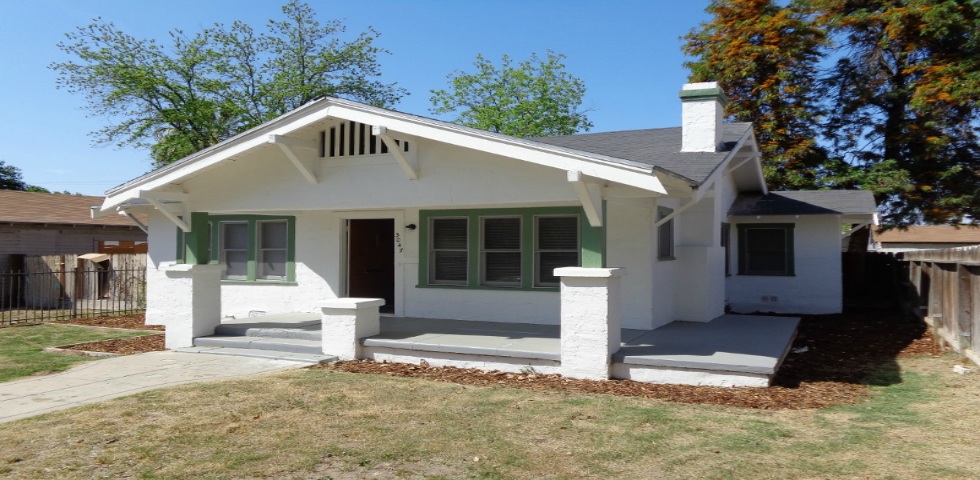Foreclosure happens when a homeowner falls behind on their mortgage payments and cannot find a way to make up for the missed amounts. Since a mortgage is a binding contract with your lender, once you default, the lender has the right to sell your property at auction to recover the unpaid debt. This not only results in losing your home but also significantly damages your credit score.
Receiving a foreclosure notice is something no one wishes to experience. However, a national survey revealed that almost 1 million Americans feared the possibility of losing their homes (U.S. Census Bureau Household Pulse Survey, conducted from July 27 to August 8, 2022). There are several potential causes for foreclosure, including:
- Loss of employment or a decrease in income
- Separation, divorce, or the passing of a spouse or partner
- Accumulating debt, such as medical bills or credit card balances
- Relocating without successfully selling the property
- Damage caused by natural disasters
Matt Buys Houses is a locally-based business in California that specializes in purchasing distressed homes and properties directly for cash. They offer fair and competitive cash deals, eliminating the need for real estate agents, title companies, and the complications of traditional bank financing, making the process much smoother for sellers.
What is Foreclosure?
Imagine you or your spouse has recently been laid off. Despite your ongoing financial obligations, including your mortgage, you no longer have the income to meet these expenses. So, what’s next? Even if you secure new employment, the debt accumulated during this period may be overwhelming and difficult to repay within a reasonable timeframe. When this situation arises, the bank typically initiates the foreclosure process.
How Much Time Do You Have to Vacate Your Home After a Foreclosure?
In most states, the foreclosure process follows several stages: missed payments, public notice, foreclosure, auction, and eviction. However, the timeline for each step differs depending on the state. The entire process can take anywhere from 120 days to nine months, depending on whether it’s a judicial or non-judicial foreclosure. During this period, your lender will contact you through phone calls, mail, and email to keep you informed about the ongoing proceedings.
The Different Types of Foreclosure
You may encounter one of two types of foreclosure: judicial foreclosure or nonjudicial foreclosure.
What Is Non-Judicial Foreclosure?
A non-judicial foreclosure is the quickest and most cost-effective method for a lender to seize your property in California. This process does not involve taking you to court and is carried out in accordance with state laws. With a non-judicial foreclosure, the lender takes possession of your home and sells it to recover the outstanding debt, utilizing a “power-of-sale” clause in the deed of trust. Although not all states permit this option, when available, lenders typically prefer it to bypass court expenses.
What Is Judicial Foreclosure?
In states where judicial foreclosure is mandated, the lender is required to file a lawsuit seeking the court’s approval to proceed with the sale of your home. You will be served with this notice, and regardless of your stance, you must respond. If you fail to do so, the court will likely rule in favor of the lender, granting permission to sell your property through foreclosure. After the sale, you will still be responsible for paying any remaining balance between the sale price and your outstanding mortgage debt.
Foreclosure auctions differ from typical home sales and often result in the property selling for less than its market value. Even if your home is in excellent condition and worth significantly more than the remaining mortgage balance, you could still be left owing tens or even hundreds of thousands of dollars after the sale. This remaining debt is known as a deficiency judgment. Because pursuing this option is both costly and time-consuming for lenders, they usually favor non-judicial foreclosures to recover their losses more efficiently.
Get an offer today, sell in a matter of days.
We buy houses in ANY CONDITION. There are NO commissions or fees and next to NO WORK on your part. Just give us a bit of information about your property below or call us at 559-978-2241.
How to Sell Your House Before Foreclosure in California
Here are several options for selling your home, depending on your specific circumstances and timeline:

Work with a Real Estate Agent
When it comes to selling a home or property, most Americans typically turn to a local real estate agent as their first option. However, if you’re facing a challenging situation like foreclosure, this route has both advantages and drawbacks. A skilled real estate agent can certainly list your home on the MLS, organize open houses, and arrange daily showings to attract potential buyers. But keep in mind that all this effort comes at a cost—at closing, a significant portion of the sale proceeds will go toward the agent’s commission. In a situation where you’re already burdened by debt and need every dollar to repay your lender, a 3% to 6% commission on the final sale price might feel like a steep price to pay.
Additionally, there’s the uncertainty of not knowing when your home will actually sell. While realtors may make various promises, you’ll still need to secure a buyer and then wait over 30 days for the standard closing process. For homeowners dealing with the pressure of an impending auction or eviction, even a month-long wait might be more time than they can afford.

Short Sale
If your mortgage balance exceeds your home’s current market value, your realtor might suggest a short sale. This process is needed when the amount you owe on your property is greater than its present worth. For instance, if you owe $200,000 but the house is now valued at only $150,000, a short sale would be required. While this option may appear beneficial, it’s important to note that it is neither quick nor simple to complete.
First, you will need to obtain approval from your lender. In order to qualify for a short sale, you must demonstrate financial hardship by providing supporting documents such as W-2s, medical bills, or similar paperwork. For instances like loss of income, the lender will expect you to prove that this loss is long-term and unlikely to improve. Once the lender agrees to the short sale, you will need to hire a real estate agent and an attorney experienced in handling short sales. Keep in mind, they will charge the same fees as they would for a traditional home sale.
If your foreclosure process hasn’t been prolonged and you’ve stayed in communication with your lender, they are likely to approve a short sale. This option helps the lender save the time and costs associated with foreclosing on your home, while still recovering part of the loss from unpaid mortgage payments. However, for the average homeowner, a short sale can have long-lasting effects, impacting their financial record for the next 5 to 7 years.
While selling the house through a short sale may help reduce some of your debt, it can still have a serious impact on your credit, similar to filing for bankruptcy. Credit unions report your mortgage delinquency and the short sale to lenders, which can significantly affect your credit history. As a result, former homeowners may find it just as difficult to obtain a credit card, purchase a vehicle, or buy a new property for the same duration as if they had gone through bankruptcy.

Sell Your House AS-IS to A Cash Buyer
If you’re facing a tight deadline to sell your home before foreclosure advances to auction and eviction, there are several options available to you. You could list your property with a real estate agent, negotiate a short sale with your lender, or—perhaps the most efficient solution—work with a reputable cash investor who can assist you in navigating your circumstances quickly.
Selling to a direct cash investor offers several advantages, including:
- A fast and hassle-free closing process.
- No commissions or fees to worry about.
- Skip the need to market your home and wait for a buyer.
- No cleaning or repairs required!
Selling your home as-is to a direct cash buyer allows you to not only avoid losing it through auction but also provides the opportunity to sell for enough to clear your financial debts. Freeing yourself from the weight of a mortgage payment and looming debt can be one of the most rewarding steps you take to move forward in life!
Can You Stop Foreclosure Once it Starts?
Yes, it is possible to stop foreclosure even after the process has begun, but it requires quick action. There are several options available that can help you regain control of your financial situation before losing your home.
Settle Your Loan and Associated Fees
You’ve landed in a challenging financial situation, with debts piling up while your income remains stagnant. It’s time to take action and explore strategies to reduce your debt quickly. Do you have any assets you could sell? Perhaps friends or family could offer a loan or gift to help you regain your footing. If you’re committed to tackling your debt and preventing foreclosure, consulting a financial expert might be necessary to help restructure your budget. Consider using one of these approaches—or even a combination of them—to conquer your growing debt and regain a stress-free life.
File for Bankruptcy
As a final option, filing for bankruptcy may provide a way to halt the foreclosure process, but it comes with significant consequences. The bankruptcy procedure is complicated and typically requires the expertise of an attorney who specializes in bankruptcy law. If your petition is approved by the court, you will be placed into a government-sanctioned credit counseling program, and the bankruptcy will remain on your credit report for seven years. This can impact many aspects of your life, from buying a car to applying for a credit card or bank account, and may even prevent you from qualifying for future rental opportunities.
The Homeowner Affordability and Stability Plan (HASP)
If your debt outweighs your income, you might qualify for the Homeowner Affordability & Stability Plan (HASP). This loan modification initiative is aimed at homeowners facing foreclosure due to inadequate income. The government introduced HASP to assist U.S. homeowners in adjusting their monthly mortgage payments to better align with a restricted budget. You can apply for the program here to determine your eligibility.
Forbearance
One of the most common solutions is forbearance, which allows homeowners to temporarily pause or reduce their mortgage payments. This can provide much-needed relief and give you time to stabilize your finances, especially if you’re facing short-term hardships such as job loss or medical emergencies.
During the forbearance period, your lender agrees not to pursue foreclosure while you get back on your feet, but it’s important to remember that this is only a temporary fix. Once the forbearance period ends, you will be required to resume regular payments and may even need to pay back the deferred payments over time. If you’re unable to keep up with this agreement, foreclosure proceedings could resume.
That said, forbearance is just one option. You might also explore loan modifications or other alternatives like repayment plans that extend your loan term or adjust your interest rate to make monthly payments more manageable. The key to stopping foreclosure is acting early and working closely with your lender to find the solution that fits your situation best.
Loan Modification
If you’re facing foreclosure, pursuing a loan modification can be an effective way to regain control of your situation. A loan modification involves changing the terms of your existing mortgage to make it more affordable, which can include lowering your interest rate, extending the loan term, or altering the mortgage type. To initiate this process, it’s essential to contact your lender as soon as possible and provide documentation of your financial hardships, such as income, expenses, and any extenuating circumstances.
When you apply for a loan modification, your lender will review your application and determine your eligibility for new terms. This process can temporarily pause foreclosure proceedings, allowing you time to stabilize your finances. If approved, the modified terms will make your mortgage payments more manageable, providing you with a pathway to retain your home. If denied, you still have options, such as appealing the decision or exploring alternatives like refinancing or forbearance.
Repayment Plans
One effective strategy to halt foreclosure is to establish a repayment plan with your lender. This arrangement allows you to catch up on missed mortgage payments by spreading the overdue amount over a specified period while continuing to make your regular monthly payments. To initiate this process, it’s crucial to communicate with your lender as soon as you realize you may miss payments, providing details about your financial situation.
Typically lasting from a few months to several years, a repayment plan requires you to pay your normal mortgage amount plus a portion of the missed payments. For example, if you missed three payments, the lender might allow you to add an extra amount to your regular payment until the balance is cleared. While this can help you avoid foreclosure, it’s essential to adhere to the new terms, as failing to do so can lead to renewed foreclosure proceedings.
Related Articles
5 Ways the Foreclosure of Your California House Will Impact You in the Future
The Difference Between Pre-Foreclosure and Foreclosure for Homeowners in California
Stopping the Foreclosure Process: A Guide for California Homeowners
What Homeowners in California Can Expect During the Foreclosure Process
4 Things to do if You Are Upside-Down on Your Mortgage in California
Sell Your House Fast to a Cash Buyer
Are you looking to sell your home quickly but can’t afford to wait over 30 days for a traditional closing? Does the idea of a short sale sound like a quick way to damage your credit? Would you rather pay off all your debt immediately and get the bank off your back? A direct cash buyer might be the ideal solution for you! By working with a reputable local cash investor, you’ll find a company ready to purchase your home as-is. With a cash buyer, you can bypass the lengthy foreclosure, eviction, and auction process in just a few days, all while protecting your credit.
While selling to a reputable cash investor may not yield full market value for your home, the benefits of a quick closing, along with no fees, required inspections, or commissions, often make up for it. The biggest advantage is that, due to the fast closing process, you can typically finalize the sale before the bank has a chance to auction off your property. This allows you to sell for a price that works in your favor, rather than the heavily discounted amount the bank might accept just to remove the property from their records.
We Buy Houses in Foreclosure & Pre-foreclosure–
Get Your Offer Today!
Are you ready to move on from your property and leave the looming threat of foreclosure behind? Reach out to a true expert at Matt Buys Houses to learn more and receive a fair cash offer for your home today.

